MercoPress. South Atlantic News Agency
Tag: Latam
-
Monday, April 11th 2011 - 21:09 UTC
Brazil aware its relation with China raises the risk of “Dutch Disease”
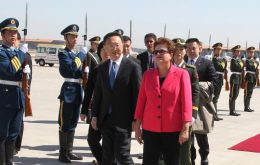
President Rousseff arrived in Beijing Monday to begin a state visit to China that will incorporate Thursday’s summit of BRIC leaders. However Ms Rousseff’s trip to China is symbolically important since it is her first overseas visit outside Latin America and underlines the growing importance of the Brazil/China relationship, points out Capital Economics.
-
Monday, April 11th 2011 - 06:17 UTC
With Colombia support Venezuela gets temporary extension of Andean membership
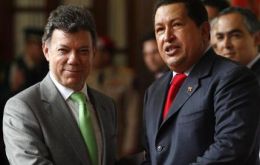
Colombian President Juan Manuel Santos and Venezuela’s Hugo Chavez agreed over the weekend to temporarily extend the bilateral trade pact within the framework of the Andean Community, or CAN, despite Venezuela’s pending withdrawal from that regional organization on April 21.
-
Monday, April 11th 2011 - 06:04 UTC
Unemployment in Latam to remain strong into 2012 because of ‘uncertainties’
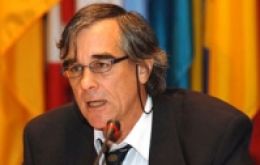
An estimated 17 million people will suffer unemployment in Latin America well into 2012 according to latest estimates from the Economic Commission for Latin America and the Caribbean, ECLAC.
-
Monday, April 11th 2011 - 05:07 UTC
China posts surprise quarterly trade deficit of 1.02 billion USD, first in six years
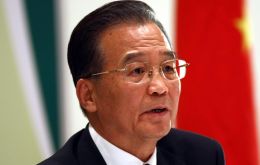
China on Sunday reported a surprise quarterly trade deficit of 1.02 billion US dollars, the first in six years as it settles to rebalance its export oriented economy to boost domestic consumption in the next five years.
-
Saturday, April 2nd 2011 - 07:57 UTC
Latam wind energy expanded 50% in 2010; Argentina has the greatest potential
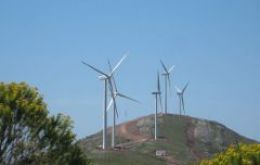
Installed wind farm capacity in Latin America grew by 50% during 2010, and more than 2,000 MW of wind power are now operating across the region, according to the Global Wind Energy Council, GWEC.
-
Friday, April 1st 2011 - 01:19 UTC
Mexico interested in joining “the successful Unasur club”

Mexico is interested in joining Unasur, Union of South American Nations, according to the country’s Deputy Foreign Affairs minister Ruben Beltrán. “When a club is successful one wants to join in”, said Beltran during a visit to Quito where he met Unasur officials.
-
Thursday, March 31st 2011 - 02:17 UTC
GeoPark joins Korea’s LG to expand oil exploration in Latin America and Asia

Latin American oil and gas company GeoPark Holdings which operates in Argentina and Chile, will sell a 10% stake in GeoPark Chile Ltd for 70 million US dollars to a unit of Korea's LG Corp. The transaction is expected to close in the second quarter of 2011, GeoPark said.
-
Tuesday, March 29th 2011 - 18:08 UTC
World Bank says Latam has capacity and potential to help solve global food crisis

Latin America can help solve the global food crisis by expanding farm production, the World Bank said this weekend, and Colombia said it was on board with plans for an 'agricultural revolution'.
-
Monday, March 28th 2011 - 04:55 UTC
IDB plans to double financing to private companies to boost job creation

The Inter-American Development Bank Group expects to more than double its annual financing to companies in Latin America and the Caribbean over the next four years, a move that will help the Group fulfill its mission to promote development though the private sector in the region.
-
Monday, March 28th 2011 - 01:03 UTC
IMF recommends ending fiscal stimulus before turning to capital controls
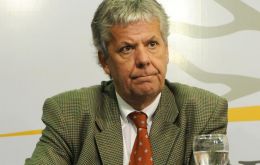
Latin American policy makers should withdraw fiscal and monetary stimulus to prevent their economies from overheating before turning to capital controls to limit foreign currency inflows, said Nicolas Eyzaguirre, the International Monetary Fund Western Hemisphere director.
